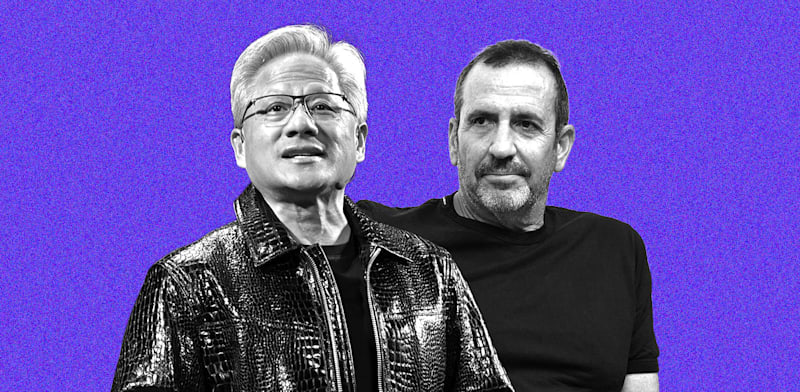Prof. Joel Mokyr has been awarded the Nobel Prize in Economics together with two other economists – Philippe Aghion and Peter Howitt – for showing how technological progress has led to sustained economic growth.
Prof. Mokyr was born in the Netherlands and raised in Israel in Haifa. After graduating in economics and history from the Hebrew University of Jerusalem, he received a doctorate from Yale University in 1974. Since 1994 he has been has a professor of economics and history and the Robert H. Strotz Professor of Arts and Sciences at Northwestern University. He was also the Sackler Professorial Fellow at the Eitan Berglas School of Economics at Tel Aviv University.
The Royal Swedish Academy of Sciences said that Mokyr used historical sources as one means to uncover the causes of sustained growth becoming the new normal. He claims that one factor necessary for such growth is that society is open to change.
Mokyr receives the prize for his development of a theory for sustained economic growth. Mokyr identified three important requisites for growth: useful knowledge, mechanical competence and institutions conducive to technological progress.
Interviewed by “Globes” in 2018, Mokyr said that belief in progress is the key to the wealth of all of us. “Most human societies that have ever existed did not believe in progress,” he said. “They thought that history moved in circles. Ups and downs, ups and downs, and there was no trend toward a better world. This changed only in one place in the world: Europe. The Muslim world did not believe in progress, the Chinese world did not believe in progress, and in India they do not exactly believe in progress. The Western world did develop a concept of progress, and the implications are enormous. If you believe in progress, it is clear to you that your generation knows more than generations that have passed. You believe that you are capable of going further than those who came before you. That the ancients may have been wise, but not all the truth is written in the scriptures. Not of Judaism, not of Islam, not of Confucianism. We are rewriting the books.” “For progress,” he added, “there are always losers – and today there are many of them.”
He added, “I don’t think there is anyone who seriously doubts our ability to advance technologically and scientifically, not only at the pace that was in the past but even at an accelerated pace. When you look at what is happening in science, including the ability to manipulate genes, DNA, our ability to create new materials, to control different types of energies – it is quite clear that our abilities to control nature and exploit it for our benefit are increasing year by year, at an accelerated pace.
“So far, everything is good. What is worrying, what is frightening, is that there are many doubts about our ability to manage society, and to adopt policies that will exploit our technological capabilities for the benefit of society as a whole. There is a feeling among very broad strata that technological improvements serve a small group, which is getting richer and stronger at the expense of the rest, while the majority of the population does not benefit. It is possible to argue whether this is factually true. What is clear is that there are people who think that way, and the political reaction today, of the rise of nationalist, conservative, xenophobic movements, is a result of the feeling that the new technology serves a small group of people and harms the majority of the population.”
He continued, “Our world has changed so much that you have to be very careful with almost any claim based on history. For example: There has never been a time in history when the number of people over 50 was as high as now. Life expectancy, that is, the number of years you could expect to live the day you were born, was less than 40, 150 years ago. Of course, that’s an average, and there were people who lived long lives, but in large parts of the world, half of the children born never reached adulthood. Half! Today, infant mortality is practically zero. Life expectancy in all industrialized countries is over 80. That’s a dramatic change.
“The second dramatic change is that a great many countries, especially in Europe, have effectively solved the problem of poverty. If you walk around cities like Zurich, Dublin or Paris, you hardly see poor people. You don’t see beggars. In the US it’s more complicated… but even in the US the proportion of poor people who don’t know if they’ll have anything to eat in the evening is very small. And in the past, it wasn’t like that.”
Mokyr’s warning
In conclusion (in 2018), Mokyr said that he is sure that progress will continue, but not so sure about democracy. “I was a great optimist not only about our technological capabilities, but also about the ability of modern democracies to become open and liberal states. Today I am starting to think that I am right about technologies, and less optimistic about the survival of democracy and open institutions, including globalization.
“I am starting to think that perhaps we should look back and see how democracies that existed in the past actually became extinct and disappeared. Not only the democracy that disappeared in the 1920s and 1930s in places like Italy, Spain and Germany, but also the Greek democracies in Athens and other places that disappeared over time. It is no longer clear whether open institutions and democracy are what is called in economics an ‘absorbing state,’ meaning that once you get there, you stay there. Probably not,” he warned.
Published by Globes, Israel business news – en.globes.co.il – on October 13, 2025.
© Copyright of Globes Publisher Itonut (1983) Ltd., 2025.



























